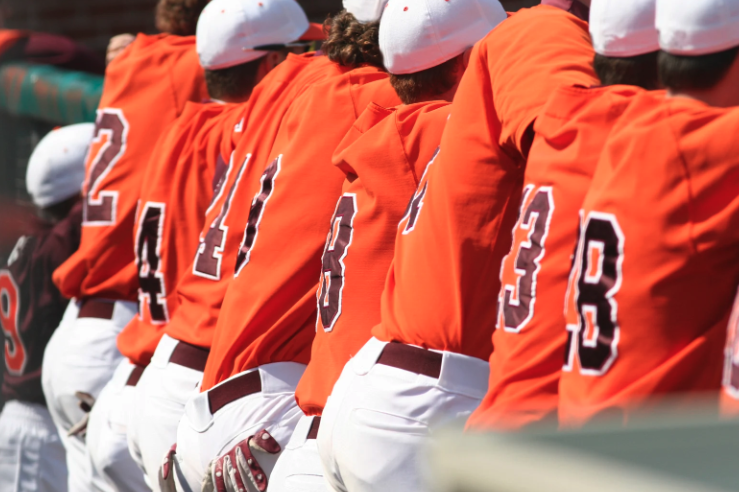[openrouter]Summarize this content to 2000 words
819
Fanatics, a sports apparel company, makes large profits by paying teams big for licensing and then selling a cheap, inferior product. Criticism of quality issues has yet to hurt its market share, however, as reported by Slate in March 2024.
The company holds critical apparel licensing partnerships with four major North American professional sports leagues, as well as numerous college athletic programs. Fanatics manufactures its own apparel, including game uniforms, and also sells products from other companies. The company has an evaluation of $31 billion, and had a projected $8 billion in internal revenue production, per CNBC.
Fanatics has been under scrutiny as of late due to their poor spring training uniforms for Major League Baseball. These uniforms have poor patching, see-through pants, and overall have a bootleg look. This has led to certain teams, such as the Cincinnati Reds, to revert to last year’s pants, which were made by Majestic instead of Fanatics, per The Athletic. Despite this debacle, Fanatics remains Nike’s supplier for the MLB.
Beyond this, Fanatics has problems supplying fans with goods they ordered. One customer on X (@SeanDeitrick) wrote on March 4, 2024, “Welp, @Fanatics just canceled my Christmas present today: a World Series baseball autographed by Adolis Garcia. Hope they enjoyed having my money for three months interest free for selling something they apparently never had. So bummed. So, so bummed”. This is an experience that is unfortunately shared by many fans but is largely unavoidable as Fanatics holds much of the licensing required to sell such goods. Getting the product from another company is either not an option or significantly more expensive.
As for corporate coverage of the topic, nothing really captures the full picture like this Slate article has. Several articles, such as this NBC Sports article, have covered issues with Fanatics products, including their baseball pants and the complaints of MLB players who have to wear them. ESPN also posted an article about how a rival card company, Panini, sued Fanatics for being a monopoly—however, this focuses on Fanatics at the corporate licensing level and does not include information on their poor products.
Given that NCAA athletes now have the theoretical right to earn corporate profits from Name, Image and Likeness (NIL) deals, the corporate bad actor already raking in the profits from their sweat deserves greater scrutiny—even from non-sports fans. “The company fits into the trend of enshittification, which happens when a company builds up a huge consumer base, then sells out its users in service of its business clients,” Kirshner concluded.
Source: Alex Kirshner, “It’s Time for Fanatics to Get Grilled by Congress,” Slate, March 7, 2024.
Student Researcher: Duncan Kammar (Frostburg State University)
Faculty Evaluator: Andy Duncan (Frostburg State University)
[/openrouter]
[openrouter]rewrite this title Fanatics Is Running a De Facto Sports Apparel Monopoly[/openrouter]
[openrouter]rewrite this content and keep HTML tags
819
Fanatics, a sports apparel company, makes large profits by paying teams big for licensing and then selling a cheap, inferior product. Criticism of quality issues has yet to hurt its market share, however, as reported by Slate in March 2024.
The company holds critical apparel licensing partnerships with four major North American professional sports leagues, as well as numerous college athletic programs. Fanatics manufactures its own apparel, including game uniforms, and also sells products from other companies. The company has an evaluation of $31 billion, and had a projected $8 billion in internal revenue production, per CNBC.
Fanatics has been under scrutiny as of late due to their poor spring training uniforms for Major League Baseball. These uniforms have poor patching, see-through pants, and overall have a bootleg look. This has led to certain teams, such as the Cincinnati Reds, to revert to last year’s pants, which were made by Majestic instead of Fanatics, per The Athletic. Despite this debacle, Fanatics remains Nike’s supplier for the MLB.
Beyond this, Fanatics has problems supplying fans with goods they ordered. One customer on X (@SeanDeitrick) wrote on March 4, 2024, “Welp, @Fanatics just canceled my Christmas present today: a World Series baseball autographed by Adolis Garcia. Hope they enjoyed having my money for three months interest free for selling something they apparently never had. So bummed. So, so bummed”. This is an experience that is unfortunately shared by many fans but is largely unavoidable as Fanatics holds much of the licensing required to sell such goods. Getting the product from another company is either not an option or significantly more expensive.
As for corporate coverage of the topic, nothing really captures the full picture like this Slate article has. Several articles, such as this NBC Sports article, have covered issues with Fanatics products, including their baseball pants and the complaints of MLB players who have to wear them. ESPN also posted an article about how a rival card company, Panini, sued Fanatics for being a monopoly—however, this focuses on Fanatics at the corporate licensing level and does not include information on their poor products.
Given that NCAA athletes now have the theoretical right to earn corporate profits from Name, Image and Likeness (NIL) deals, the corporate bad actor already raking in the profits from their sweat deserves greater scrutiny—even from non-sports fans. “The company fits into the trend of enshittification, which happens when a company builds up a huge consumer base, then sells out its users in service of its business clients,” Kirshner concluded.
Source: Alex Kirshner, “It’s Time for Fanatics to Get Grilled by Congress,” Slate, March 7, 2024.
Student Researcher: Duncan Kammar (Frostburg State University)
Faculty Evaluator: Andy Duncan (Frostburg State University)
[/openrouter]
